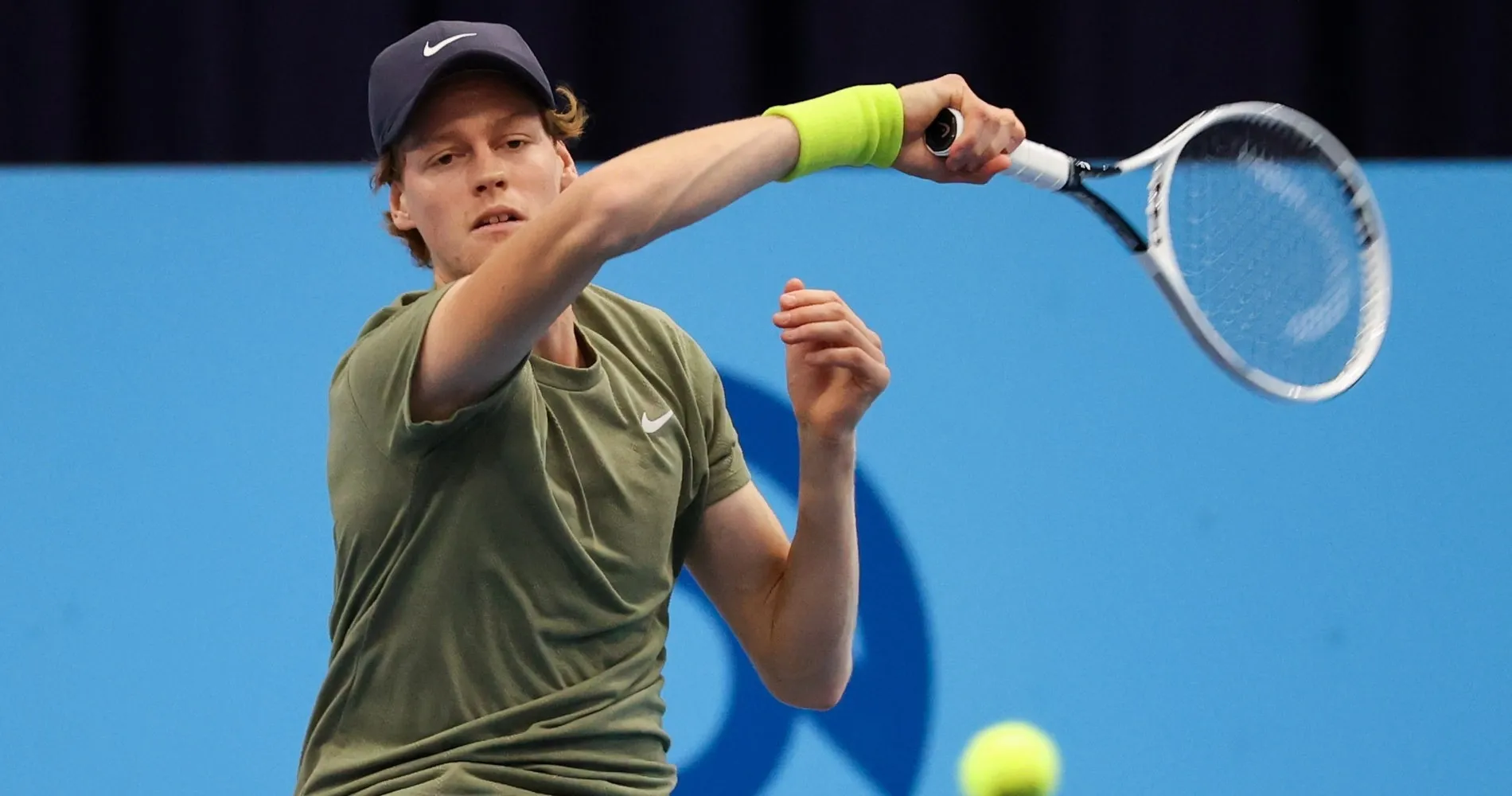World of Tennis Strongly Rebukes Lenient Suspension for Sinner

In a doping controversy that has shaken the tennis world, Jannik Sinner – the world’s number one ranked player – has been handed a three-month suspension after testing positive for the banned substance clostebol at the 2024 Indian Wells tournament. While Sinner was stripped of his points and prize money from the event, his punishment has raised eyebrows. The 3-month ban has been described as far too lenient, especially when compared to the far harsher penalties handed out to other top players like Simona Halep and Mikael Ymer in recent years.
So, what’s really going on here? Is tennis a sport of true fairness, or is there a hidden “privilege” for its elite players? What started as a scandal has now become a full-blown debate, with fans and players alike questioning the fairness of the punishment. Here’s everything you need to know about the controversial case, and why many feel it might be a sign that the integrity of the sport is at risk.
“Why the leniency for Sinner?”
Recently, the Court of Arbitration for Sport (CAS) issued its final verdict on Jannik Sinner’s case. Initially, the International Tennis Integrity Agency (ITIA) refrained from imposing a suspension, but after intervention by the World Anti-Doping Agency (WADA), the case was escalated, resulting in a three-month ban for Sinner. However, the punishment, especially when compared to the harsh penalties handed down to other players in recent years, has left many in the tennis world frustrated.
Stanislas Wawrinka, former world number 3 and three-time Grand Slam champion, expressed his dismay: “I no longer trust the integrity of this sport. This is a shocking decision for all of us who care about tennis.”
Former world number 1, Yevgeny Kafelnikov, also couldn’t hide his disbelief: “If you’re 100% sure you’re innocent, why would you accept a three-month ban? It just doesn’t make any sense.”
Even the notoriously outspoken Nick Kyrgios chimed in, furious about the ruling: “WADA said there would be a 1-2 year ban, but Sinner managed to shorten it to just 3 months. He didn’t lose any titles or prize money. It’s a sad day for tennis – fairness is clearly missing from this sport.”
“Sinner didn’t mean to do it… but…”
So what’s the real story here? According to WADA, Sinner explained that his positive test for clostebol was a result of an accidental exposure to the banned substance. The substance was reportedly administered to him by his fitness and therapy team while treating an injury during the tournament. Despite Sinner’s insistence that it was an accident, WADA maintained that he should still be held accountable for the actions of his team. Consequently, they deemed the three-month suspension to be a fair penalty.

But here’s where it gets interesting. Sinner’s argument is that it was a mistake on the part of his team, and yet, the consequences he faced seem far less severe than those imposed on other players in similar situations. In the case of Halep and Ymer, their suspensions were much longer and more punishing, prompting questions about a potential double standard in the way tennis handles doping violations.
“We can strike a deal over doping, huh?”
One of the most eyebrow-raising comments came from British tennis player Liam Broady, who humorously pointed out, “I didn’t realize we could strike a deal over doping! This is pretty interesting. I guess Sinner will be back in time for Roland Garros?”
His sarcastic remark highlights the growing cynicism surrounding the case. Some are joking that if you’re a high-profile player like Sinner, you can essentially “negotiate” a shorter ban and avoid the full consequences of a doping violation. His words, though humorous, underscore a bigger issue: the perception that tennis is becoming more lenient when it comes to its star players.
The controversy deepens when you consider the fact that WADA’s decision to accept Sinner’s explanation was based on the assumption that Sinner himself wasn’t directly at fault. The agency claims he was still responsible for his team’s actions, and therefore, the three-month ban was considered appropriate. But as the tennis world watches on, many are left wondering if this is just another case of a “special treatment” for one of tennis’s biggest stars.
The Bigger Loss for Tennis
As it stands, Sinner will miss several key tournaments: the Qatar Open, Miami Open, Monte Carlo, and Madrid Open, all of which are ATP 1000 events. However, he will make his return in time for the Rome Masters, an ATP 1000 tournament in his home country, before heading to the French Open (Roland Garros). For fans of Sinner, it’s a blow to see their hero miss these prestigious events, but for others, the real loss might be the integrity of the sport itself.
The controversy surrounding this case raises serious questions about fairness and consistency in the sport. Is it fair that some players get shorter bans while others face much harsher punishments? Is the system truly objective, or is it biased in favor of top players?
It’s a question that likely won’t be answered anytime soon, but one thing is certain: the tennis world is watching closely. And as long as doping controversies like this remain unresolved, the sport will continue to face criticism and skepticism.
Tennis and the Doping Debate
This case has sparked wider conversations about the state of doping in tennis. The fact that a player of Sinner’s caliber can seemingly avoid a lengthy ban sets a dangerous precedent. It also raises concerns about whether the sport is doing enough to ensure its integrity.

The question remains: if top players can seemingly avoid harsh consequences for doping, what does that say about the sport’s commitment to fairness? As more and more high-profile doping cases continue to surface, the tennis world must reckon with the idea that, perhaps, it’s not just the players who need to clean up their act – but the system that governs them as well.
In the end, the situation is complicated. For now, fans and players will continue to voice their frustration, and Sinner will move forward with his suspension. But until the sport takes a hard look at its policies and consistency, these controversies will continue to tarnish the image of tennis for years to come.
Conclusion: Fairness or Favoritism?
At the heart of this debate lies a central question: Is tennis truly a fair sport? If the punishment for doping can be negotiated and reduced for star players, then the sport risks losing its credibility in the eyes of fans and critics alike. Jannik Sinner’s case may have been a “slip-up,” but the fact that he’s walking away with just a slap on the wrist leaves a bitter taste in the mouths of many in the tennis world. The question now is: how many more “accidents” can tennis afford before its reputation is permanently damaged?





